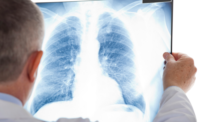 With approximately half of U.S. adults expected to develop a mental illness during their lifetime, a new report from the Centers for Disease Control and Prevention (CDC) is recommending increased surveillance efforts as a way of bolstering treatment and prevention and improving public health.
With approximately half of U.S. adults expected to develop a mental illness during their lifetime, a new report from the Centers for Disease Control and Prevention (CDC) is recommending increased surveillance efforts as a way of bolstering treatment and prevention and improving public health.
“We know that mental illness is an important public health problem in itself and is also associated with chronic medical diseases such as cardiovascular disease, diabetes, obesity, and cancer,” said Ileana Arias, Ph.D., principle deputy director of CDC.
“The report’s findings indicate that we need to expand surveillance activities that monitor levels of mental illness in the United States in order to strengthen our prevention efforts.”
A 2009 survey conducted by the Substance Abuse and Mental Health Services Administration (SAMHSA) indicates that 11 million adults (4.8 percent) in the U.S. suffered serious mental illness in the past year -- a diagnosable mental disorder that substantially interfered with, or limited one or more major life activities. Approximately 8.4 million adults in the U.S. had serious thoughts of suicide in the past year, 2.2 million made suicide plans, and one million attempted suicide.
"This new CDC study -- combined with SAMHSA’s latest surveillance data -- provides a powerful picture of the impact of mental illness on public health,” said SAMHSA Administrator Pamela S. Hyde. “People with mental disorders should seek help with the same urgency as any other health condition. Treatment and support services are effective and people do recover.”
CDC surveillance systems currently provide several types of mental health information, such as estimates of the prevalence of diagnosed mental illness from self-report or recorded diagnosis, estimates of the prevalence of symptoms associated with mental illness, and estimates of the effect of mental illness on health and well-being. Such data provides important evidence used by agencies and advocacy groups to guide effective mental health promotion, and mental illness prevention and treatment programs.



